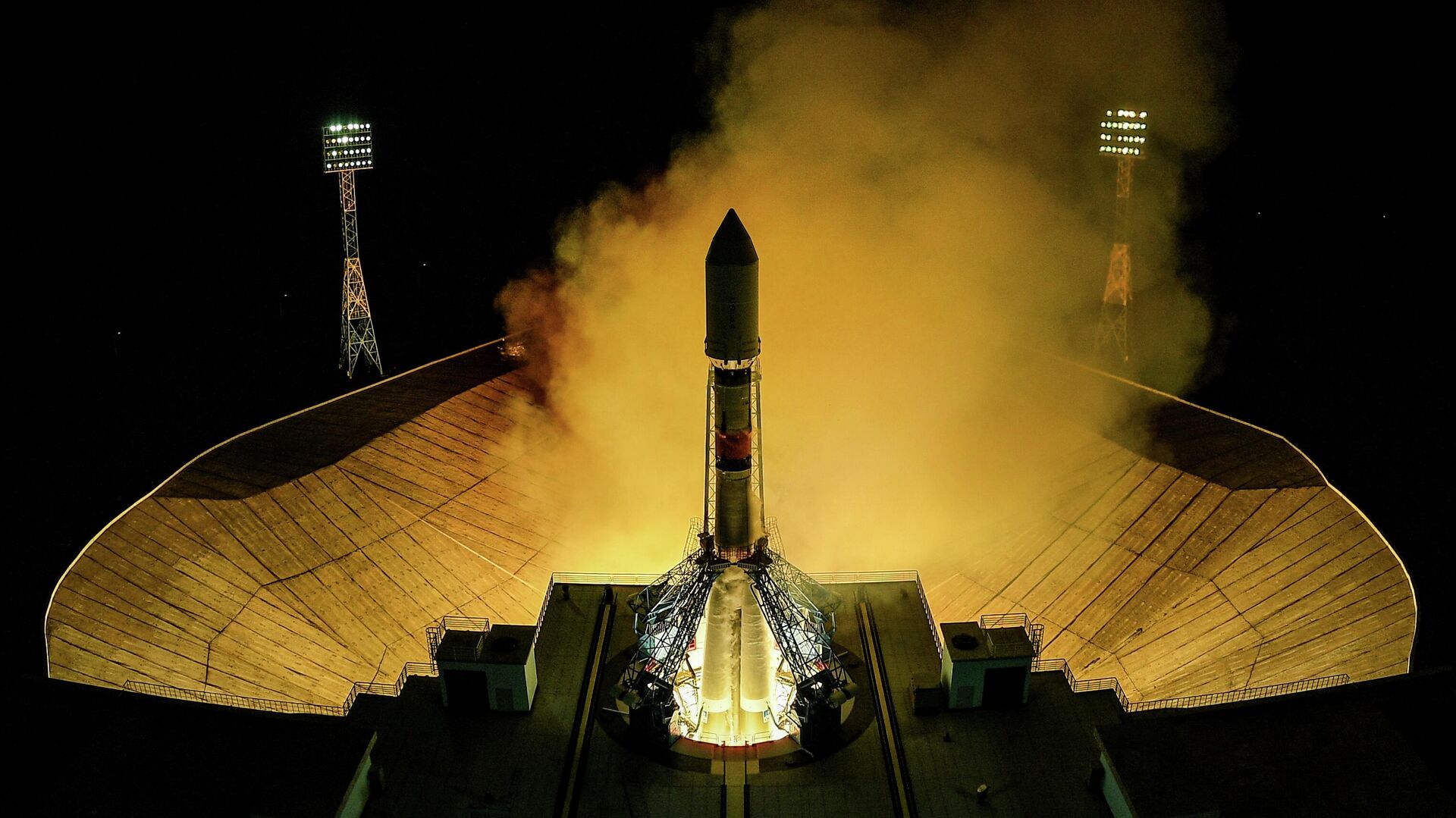https://sputnikglobe.com/20221217/temperature-on-board-soyuz-ms-22-remains-within-normal-range-crew-is-safe-1105555570.html
Temperature On Board Soyuz MS-22 Remains Within Normal Range, Crew is Safe
Temperature On Board Soyuz MS-22 Remains Within Normal Range, Crew is Safe
Sputnik International
MOSCOW (Sputnik) - Experts continue to monitor the situation in the Russian Soyuz MS-22 spacecraft, docked to the International Space Station (ISS), after its... 17.12.2022, Sputnik International
2022-12-17T22:12+0000
2022-12-17T22:12+0000
2023-04-12T16:58+0000
science & tech
roscosmos
international space station
space
https://cdn1.img.sputnikglobe.com/img/07e6/0a/17/1102541382_0:18:3051:1734_1920x0_80_0_0_c20107b75c42be2af1b4005a8d106ac5.jpg
According to a Roscosmos statement, the Russian crew is resting while the situation on the Soyuz MS-22 is being monitored.Earlier on Saturday, Roscosmos said that the temperature in Russia's Soyuz MS-22 did not exceed permissible limits and was not a threat to the safety and comfort of the crew. A leak from the cooling system of the Soyuz MS-22 occurred on Thursday due to damage to the spacecraft's outer skin. The cosmonauts reported to ground control that the diagnostic system of Soyuz had been triggered, and also confirmed that they were visually observing the leak. As a result of the failure, the temperature on board Soyuz MS-22 reached 50 degrees Celsius within a day, an informed source told Sputnik on Friday. Roscosmos specialists were working on reducing it, the source said. According to Roscosmos, temperature changes inside the spacecraft are not critical for the operation of systems, and there is no threat to the life and health of the crew. According to Roscosmos Human Space Flight Programs Executive Director Sergei Krikalev, a micrometeorite may have caused damage to the spacecraft's outer skin and depressurization of the cooling system.
international space station
Sputnik International
feedback@sputniknews.com
+74956456601
MIA „Rossiya Segodnya“
2022
Sputnik International
feedback@sputniknews.com
+74956456601
MIA „Rossiya Segodnya“
News
en_EN
Sputnik International
feedback@sputniknews.com
+74956456601
MIA „Rossiya Segodnya“
Sputnik International
feedback@sputniknews.com
+74956456601
MIA „Rossiya Segodnya“
science & tech, roscosmos, international space station, space
science & tech, roscosmos, international space station, space
Temperature On Board Soyuz MS-22 Remains Within Normal Range, Crew is Safe
22:12 GMT 17.12.2022 (Updated: 16:58 GMT 12.04.2023) MOSCOW (Sputnik) - Experts continue to monitor the situation in the Russian Soyuz MS-22 spacecraft, docked to the International Space Station (ISS), after its cooling system broke down, the press service of Russian space agency Roscosmos informs.
According to a Roscosmos statement, the Russian crew is resting while the situation on the Soyuz MS-22 is being monitored.
"The Mission Control Center continues to monitor the situation on board the Soyuz MS-22 and the Russian segment of the ISS. The temperature inside the ship remains within the normal range - from 28 to 30 degrees [Celsius, or 82-86 degrees Fahrenheit]," the Roscosmos press service said in a Saturday statement.
Earlier on Saturday, Roscosmos said that the temperature in Russia's Soyuz MS-22 did not exceed permissible limits and was not a threat to the safety and comfort of the crew.
A leak from the cooling system of the Soyuz MS-22 occurred on Thursday due to damage to the spacecraft's outer skin. The cosmonauts reported to ground control that the diagnostic system of Soyuz had been triggered, and also confirmed that they were visually observing the leak.
As a result of the failure, the temperature on board Soyuz MS-22 reached 50 degrees Celsius within a day, an informed source told Sputnik on Friday. Roscosmos specialists were working on reducing it, the source said.
According to Roscosmos, temperature changes inside the spacecraft are not critical for the operation of systems, and there is no threat to the life and health of the crew.
According to Roscosmos Human Space Flight Programs Executive Director Sergei Krikalev, a micrometeorite may have caused damage to the spacecraft's outer skin and depressurization of the cooling system.

